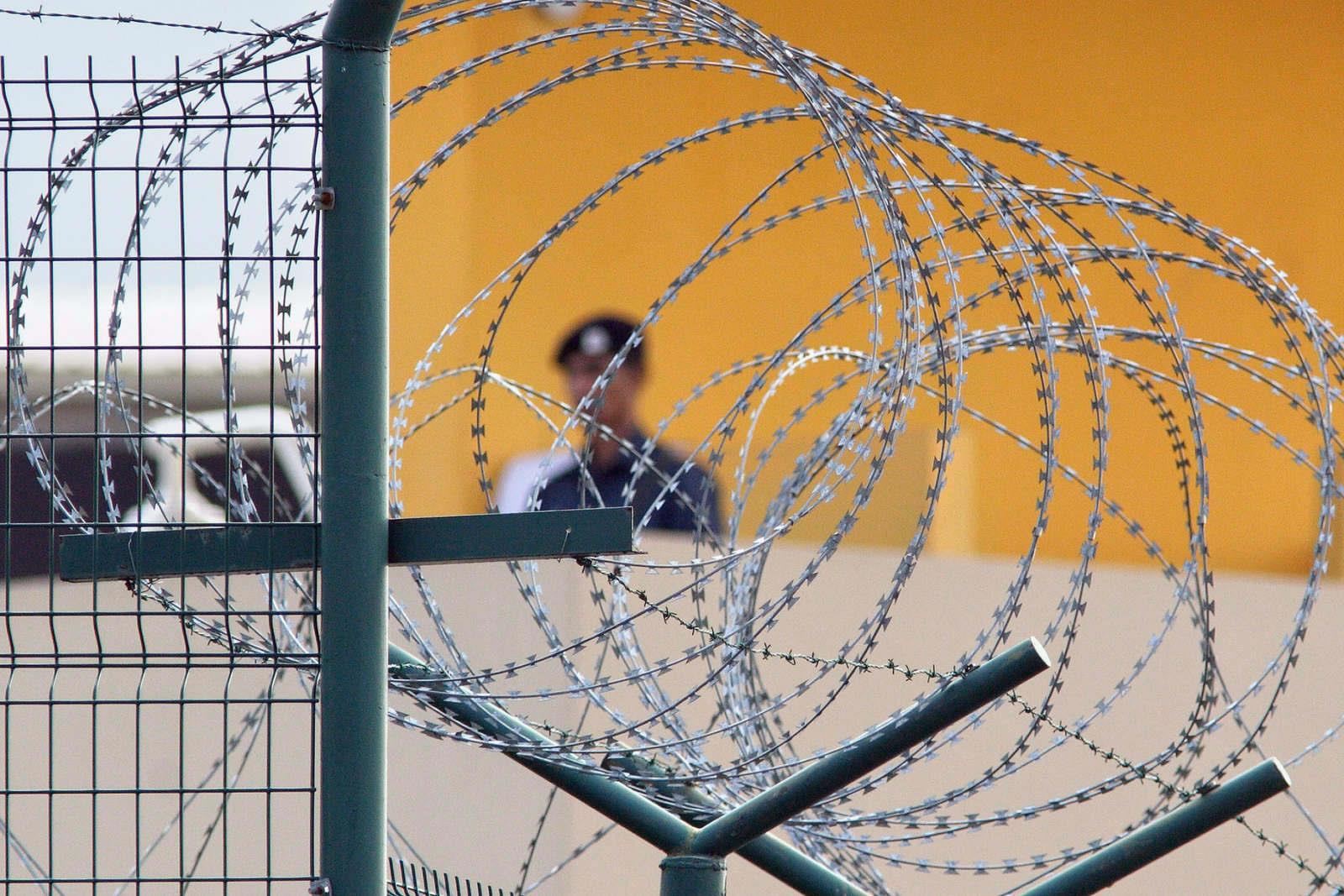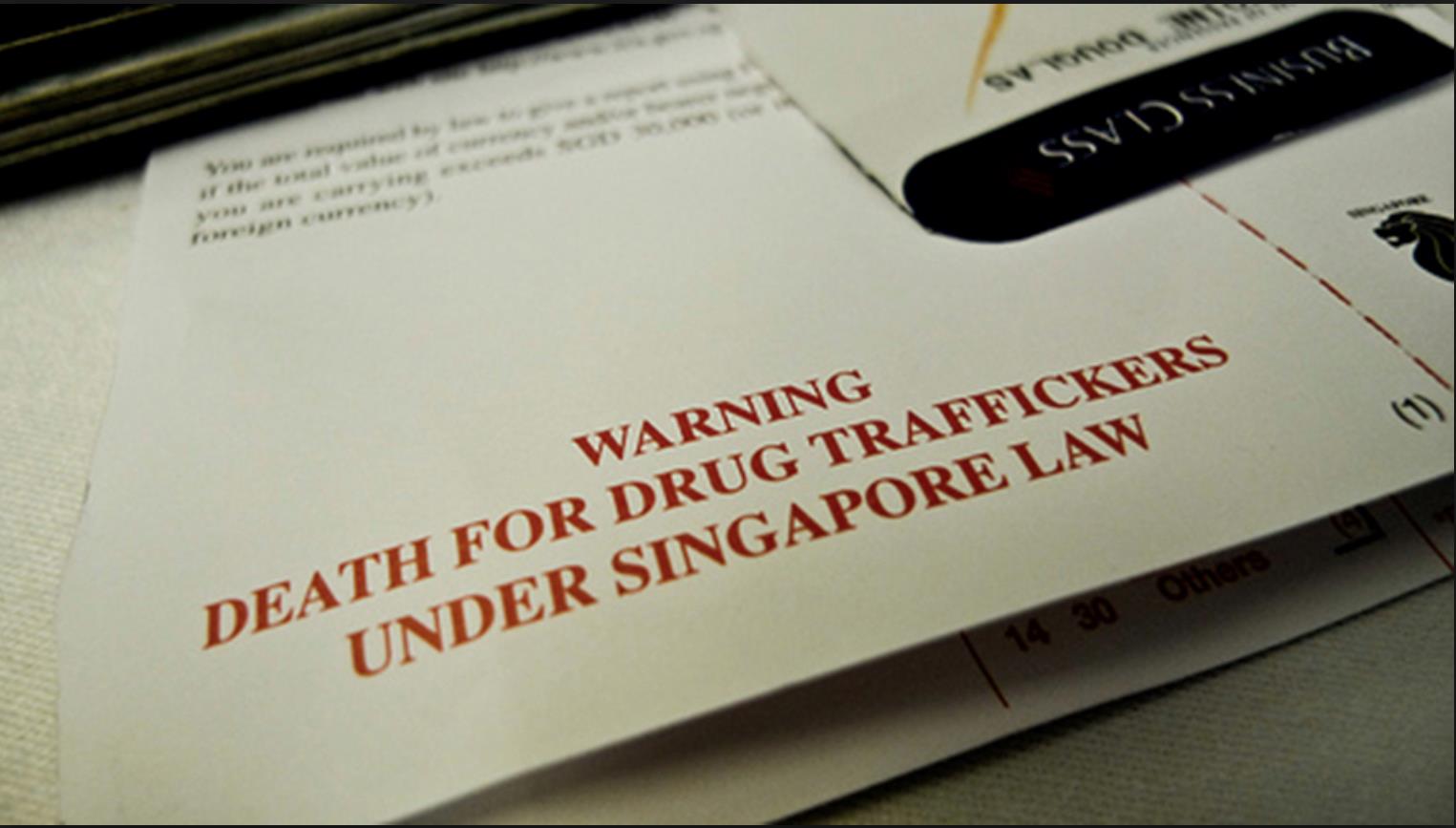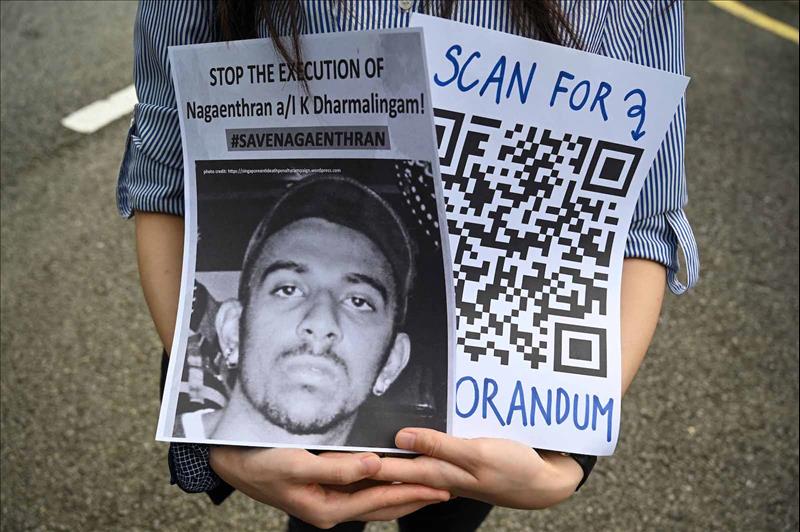
Spotlight on Singapore's propensity to kill
(MENAFN- Asia Times) SINGAPORE – Activists, lawyers and rights groups are calling on authorities in Singapore to halt plans to impose the death penalty on 33-year-old Nagaenthran Dharmalingam, a mentally impaired Malaysian man convicted of drug trafficking, after a court stayed his imminent execution until further notice after he tested positive for Covid-19.
The announcement on Tuesday (November 9) came less than 24 hours before Nagaenthran was due to be executed by hanging at Singapore's Changi Prison and gave relatives and advocates a glimmer of hope that his life will be spared. The Court of Appeal has yet to grant a prohibitory order against Nagaenthran's execution sought by his lawyers.
Prominent rights lawyer M Ravi mounted an eleventh-hour judicial appeal before the High Court on Monday, arguing that executing a“mentally disabled person” would violate Singapore's constitution and its international obligations as a signatory to a United Nations-sanctioned treaty protecting the rights of disabled persons.
The court dismissed the plaintiff's argument but granted a temporary stay of execution to allow for an appeal of that decision.“We have got to use logic, common sense and humanity,” said judge Andrew Phang as he stayed the execution prior to the court's adjournment. It is still unclear whether his death sentence will ultimately be commuted.
If executed, Nagaenthran will be the first person put to death in Singapore since 2019. His case has prompted a significant public outcry and international attention, with British entrepreneur Richard Branson, a critic of the death penalty, calling on Singapore's President Halimah Yacob to use her pardon powers and spare Nagaenthran's life.
A group of UN rights experts echoed that call, while Malaysian Prime Minister Ismail Sabri Yaakob personally appealed to his Singaporean counterpart Lee Hsien Loong for clemency in a November 3 letter, in which he stressed that he had no intention to interfere in the city-state's judicial process but appealed for leniency on“humanitarian grounds.”
“I believe there is still room for the government of Singapore to consider granting a stay of execution and allowing a new petition for presidential clemency in the case of Mr Nagaenthran. I sincerely hope you would give this appeal due consideration,” read the letter, which followed earlier outreach from Malaysia's foreign ministry.
Singaporeans have also donated money and taken to social media to condemn the use of capital punishment in Nagaenthran's case, in a sign of shifting attitudes in a city-state known for some of the world's toughest anti-narcotics laws. Authorities ardently defend the country's zero-tolerance approach as an effective deterrent against drug trafficking.

A prison guard seen through barb wire at Singapore's Changi Prison. Photo: Getty via APHR
The Malaysian was arrested in 2009 at the age of 21 after entering Singapore with 42.72 grams, or approximately three tablespoons, of diamorphine strapped to his thigh, enough to warrant an automatic death sentence when the court convicted him a year later, rejecting a defense that he was threatened and acted as a drug mule under duress.
During his trial, an independent psychiatrist diagnosed Nagaenthran with mental and intellectual impairment, citing his low IQ level of 69 and attention deficit hyperactivity disorder (ADHD). His lawyers and family members have attested to his confused mental state and lack of understanding that he faces imminent execution.
Judges in Singapore have sentencing discretion in drug cases where the defendant's role is limited to being a courier or their mental responsibility is deemed to be impaired. Nagaenthran nonetheless failed in all previous appeals to be resentenced to life imprisonment, and his application for presidential clemency was rejected last June.
In a statement, the Ministry of Home Affairs (MHA) said Nagaenthran has been accorded full due process under the law and was found to have“clearly understood the nature of his acts.” Citing court judgments, the ministry rejected the Malaysian's account of coercion and held that“mental responsibility for his offense was not substantially impaired.”
N Surendran, who is Nagaenthran's lawyer in Malaysia, disputed the MHA's statement and accused it of“falsely [claiming that] the court had assessed the evidence of psychiatrists,” pointing to High Court testimony by a psychiatrist called by the defense who evaluated Nagaenthran and determined him to be impaired.
Human Rights Watch (HRW) has called on authorities in Singapore to halt the execution, saying that putting a mentally impaired person to death is inconsistent with international law and practice. The group said Nagaenthran was denied“procedural accommodations” for his disabilities to facilitate his effective participation in his trial.
“The inhumanity shown by the Singaporean authorities in Nagaenthran's case is truly shocking,” said Emina Ćerimović, senior disability rights researcher at HRW.“The government's determination to execute a man with an intellectual disability for importing a small amount of drugs is disproportionate and cruel, and deserves global condemnation.”
Authorities notified Nagaenthran's family, who live in the Malaysian city of Ipoh, of the planned execution by a letter dated October 26, giving them just two weeks to make logistically challenging cross-border travel arrangements amid ongoing Covid-19 related restrictions, including hotel quarantine and multiple coronavirus tests.
Only five of his relatives are permitted to travel to the city-state to visit him ahead of his scheduled execution and are required to be in quarantine at all times apart from visiting the prison. The family was forced to rely on crowdfunding to cover their expenses and other arrangements, including a funeral, and raised more than US$14,000 in two days.
Singapore is one of 35 countries that still impose the death penalty for drug offenses, with those found possessing specific drugs above a prescribed amount automatically presumed to be traffickers and subject to the death penalty. At least 108 countries have abolished the death penalty for all crimes and more than two-thirds are abolitionist in law or practice.

A Singapore immigration form warning against drug trafficking. Image: Facebook
In their unflinching support for capital punishment, the city-state's leaders point to strong public support for the practice and argue it has the sovereign right to implement it. A 2019 survey conducted by the MHA found that nearly seven out of 10 agreed that the death penalty is a more effective deterrent against drug trafficking than life imprisonment.
A separate independent criminology study published by the Singapore Management University in 2018 found that while a majority of the public favored the death penalty when the question was asked in general terms, respondents crucially consider mitigating circumstances to be important in determining if capital punishment is deserved.
Based on a survey of 1,500 Singaporeans, the results showed“that there is no overwhelming support for the death penalty,” particularly when it comes to the mandatory sentencing, and a“lack of strong support for the death penalty in drug trafficking offenses in general, which is contrary to the government's stance based on a deterrence rationale.”
Critics of Singapore's heavy reliance on draconian laws say such policies have failed to tackle the use and availability of drugs, and on the contrary leads to stigma that prevents people struggling with drug abuse from seeking help, with convicted traffickers often being victims themselves who are lured or threatened into being drug mules by crime syndicates.
Authorities have been sensitive in the past to criticism of the city-state's death penalty regime. British author Alan Shadrake was sentenced to six weeks in prison and fined S$20,000 ($14,858) in 2010 for insulting the judiciary in a bestselling book he wrote that alleged a lack of impartiality in the city-state's use of capital punishment.
With Nagaenthran's fate in the hands of the appeals court, campaigners continue to call on the city-state to commute his death sentence to life imprisonment. An online petition launched by rights group Amnesty International calling for presidential clemency has, meanwhile, garnered more than 73,000 signatures at the time of writing.
“As a petition signed by tens of thousands of people shows, Singapore is once again on the wrong side of history with its draconian drug laws and policies, which have failed to tackle drug dependence in the country,” said Rachel Chhoa-Howard, Amnesty International's Singapore researcher.
“There is still time for Singapore to change course and stop this unlawful execution from taking place. Taking people's lives is a cruel act in itself but to hang a person convicted merely of carrying drugs, amid chilling testimony that he might not even fully understand what is happening to him, is despicable,” she said.

Legal Disclaimer:
MENAFN provides the
information “as is” without warranty of any kind. We do not accept
any responsibility or liability for the accuracy, content, images,
videos, licenses, completeness, legality, or reliability of the information
contained in this article. If you have any complaints or copyright
issues related to this article, kindly contact the provider above.


















Comments
No comment